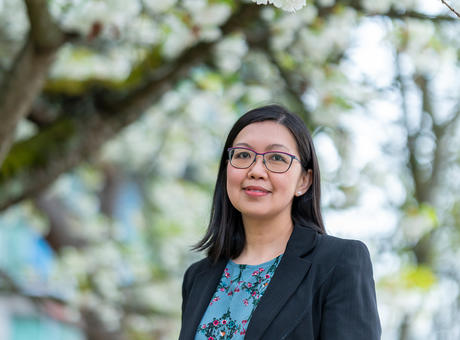A third of blood cancer research funding to women investigators in Canada
The Leukemia & Lymphoma Society of Canada's $5 million investment includes a strong focus on an aggressive, complex form of blood cancer
Almost $5 million has been invested by the Leukemia & Lymphoma Society of Canada (LLSC) in the work of 37 blood cancer researchers – including 14 women – at 21 universities and hospitals in five provinces.
A considerable proportion of the research focuses on an aggressive, complex form of blood cancer – acute myeloid leukemia (AML), which is the most common type of acute leukemia in adults. For example, Dr. Brett Houston, University of Manitoba, is investigating how to reduce the risk and severity of bleeding in people with AML – more than 1,000 Canadians a year die from AML – and people with myelodysplastic syndromes (MDS).
“Bleeding complications can lead to hospitalization or death,” says Dr. Houston, one of 25 recipients co-funded by the LLSC and Cancer Research Society (CRS). “At the very least, bleeding can negatively impact the quality of life for patients with AML and MDS.” Almost 6,000 Canadians a year are diagnosed with MDS, a kind of pre-leukemia that can lead to AML.
Quality of life for teens and young adults with blood cancers
This year’s recipient of the United Food and Commercial Workers’ (UFCW) Special Recognition Award is Dr. Helen McTaggart-Cowan (shown above), who received one of the LLSC Blood Cancer Quality of Life Grants, for her work understanding mental health outcomes and experiences of adolescents and young adults (ages 15-39) with blood cancers.
“Teens and young adults face life challenges that are different from the younger and older patient populations,” says Dr. McTaggart-Cowan. “Having to navigate the system with a blood cancer diagnosis and treatment make it that must more difficult. These challenges impact their mental health, and lives in general, for the rest of their lives.”
Nadine Prevost, Director, Research and Community Support, LLSC, notes that “we engage with researchers of all 147 types of blood cancer within leukemia, lymphoma, myeloma, MDS, and MPN. We’re please this year to help fund the high-need area of better understanding and treating AML.”
Approximately one-third of expenditures by LLSC each year goes to blood cancer research; the rest to patient support – including services delivered in all provinces and territories – public education about blood cancers, fundraising efforts, and operations matching community needs.
